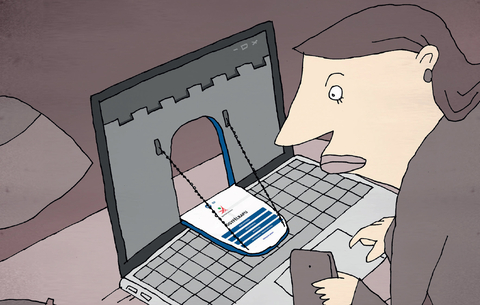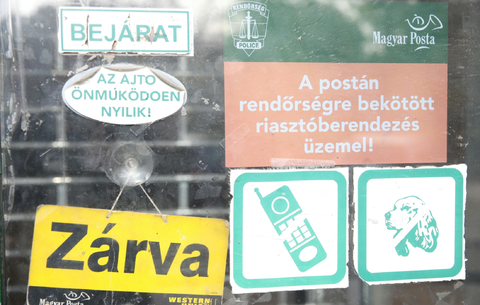State security papers heading to market
The Historical Archive of the State Security Services have neither the staff nor the resources to make former state security apparatus’s papers available on the internet. Despite its building’s recent renovation, the Archive continues to struggle with a lack of space. The building may be extended towards the market hall on Hunyadi tér, at huge cost.
Following President Ferenc Mádl’s referral of the revised Agents’ Law to the Constitutional Court, the Historical Archive of the State Security Services (ÁBTL) may have gained time, but there is no question that sooner or later, it will acquire more responsibilities, for which it does not currently have the resources.
The ÁBTL was created in 2003 as a successor to the Historical Office that was set up in 1997, and continues to operate from its original address on Eötvös utca in the 6th district. But the archive’s building proved inadequate as the collection grew in size and as the institution acquired new roles. The building was thus extended and modified. This was not without difficulties, since the building in question is a protected monument, making cheaper solutions impossible. The works were nonetheless completed within two years.
The archive is currently working with a full complement of 94 staff, according to Katalin Kurucz, deputy director of the institute.
The terms of the president’s request for a Constitutional Court ruling throw into question the very purpose of the law. Mádl believes that it would make the information available to anyone without any constitutional justification, and that this would violate the right to have personal data protected. Neither historical research nor the growing piles of lists of former agents would justify making information about networks of agents available to all and sundry. In Mádl’s view, even a constitutional amendment could not justify the governing coalition’s goal of making the state security papers fully accessible.
But the Constitutional Court’s hearing does not affect those parts of the revised law which broaden the ÁBTL’s field of responsibilities, and so will only postpone the time when they come into force. Kutrucz says that the requirement that certain types of document be placed on the institution’s web page will pose particularly severe problems.
The Archive has thus far digitised around half a million pages, but the scanning of the documents prescribed by the law could take decades at the current pace. György Gyarmati, the director of the archive told IT Minister Kálmán Kovács at their meeting in March that only around 7% of the archive’s collection relates to former agents. Furthermore, a significant proportion of the documents covered by the law would be meaningless once the names of the victims had been removed. Placing them on the internet would be superfluous.
Kutrucz cites the registry books as an example of documents that did not need to be mentioned in the Agents’ Law. Because of data protection laws, visitors to the web site would see blocked out lines instead of the individuals’ names.
The ÁBTL currently lacks both the equipment and the staff that would be needed for mass digitisation – and nor do they have anywhere to put new employees, claims Kurucz. Given the limitations of the existing building and the sensitivity of the documents it houses, extension towards the Hunyadi tér market hall seems the only realistic option. But there will be no money for this before next year’s budget is passed, meaning that there would be a wait of at least two years.
Furthermore, the archive has to prioritise. It regards serving the victims of the Security Services and serving researchers as its first responsibility. But it must also process new material which is continuously arriving from the existing national security authorities and catalogue some 50 million pages of material already in its possession. If things continue as they are, says Kurucz, then there is no question that making material available on the internet will come far down their list of priorities.









